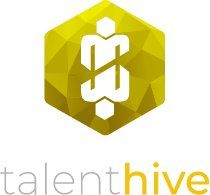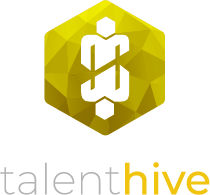INSIGHT SERIES – ENGINEERING YOUR CAREER
Matt Love-Smith • September 20, 2021
Finishing full-time education and entering the world of work is a time of uncertainty for anyone. But engineers face a specific set of challenges peculiar to their chosen profession. Each interview situation requires candidates to call on different areas of technical expertise, and demonstrate how they would apply their know-how in real world situations.
To help engineering graduates prepare for entering the jobs market, we sat down with Sergio Vallesi, an environmental and civil engineer with 12 years experience. Sergio answered some key questions facing engineering graduates, and offered some sound advice on planning a long, rewarding career in the industry.
Multi-discipline civil engineering students often have a hard time choosing a specific career path. Is there a ‘right time’ to commit to one particular discipline?
If you really want to commit to a discipline, first of all you’ll need to shift your focus from ‘what you expect from life’ to ‘what life is expecting from you’. Then the following groundwork will help you know when it’s the ‘right time.’
During the ‘learning phase’, it is important that you take the time that you need to develop your dreams, broaden your horizons, and gain different work experiences. This may include studying different subjects, undertaking overseas experiences, and trying out some trades.
During the ‘doing phase’, it is important that you remain true to yourself, develop a deeper sense of commitment and share your dreams. You will attract mentors (either inside or outside the organisation you are already working for) who will help narrow down your interests and introduce you to a specific discipline. In particular, a mentor will expose you to some really powerful insights and help you to focus. Generally, you will have to work really hard to convince this mentor that you are committed. This will fully ignite your pilot passion and help you to develop your own vision. As you share your vision, you will start inspiring and motivating others and this will help consolidate your choice of discipline. At that time you’ll become unstoppable!
During the ‘giving phase’, it is important that you continue to remain true to your values, while you assist others to find their way, commit to a discipline, and develop their own visions.
How important are mentors? What are your experiences of mentorship and how it complements theoretical engineering studies?
Mentorship is an essential step in everyone’s life, at work and on a personal level. For a number of years, from primary school through university, I waited for the right mentor to arrive in my life. Once graduated, I travel extensively to discover my professional dreams and start gaining some practical experiences.
During this process I met four mentors that exposed me to the following areas: a) entrepreneurship and selling skills; b) environmental research and education; c) engineering and analytical skills; d) professional behavior and commitment.
Although throughout this process I ended up remaining for quite some time in one discipline, I was still far from being committed to a particular cause. When I finally met a fifth mentor, he took me through one of the most fascinating and challenging learning journeys I ever experienced, which resulted in discovering my professional goal.
For graduates looking for their first position, does company size matter? What are the pros and cons of working for a large organization compared with smaller companies?
Company size will have positive and negative impacts in all three phases of your working life.
(On the plus side)… a large company would generally allow you to look around, learn from the different fields, ask questions, and even take training or delivering tasks in areas outside your role. (On the minus side)…due to the opportunities for internal advancement, financial gains, and long-term employment, the large system may dampen your professional dreams. There is a risk of getting stuck and ‘content’ within the company at the loss of your visions and values.
A small company will usually not have the budget and the variety to help you in widening your mind and experience, but this sense of frustration will help you figure out what you really want and (perhaps enable you to) implement it inside the same company. If this is not possible, at least you’ll find it easy to move on.
Statistically, engineering graduates have greater employment chances than most other professions. Is it wise for a graduate to pursue a career in their third or fourth choice of discipline because the market will favor them?
The main advantage to enter a discipline that is favored by the market (and not by us) is that it would enable us to rapidly develop our professional skills and network which we can then, in part, be used to enter into a discipline that is less favorable. This risk is that if you don’t stay true to yourself you might lose your professional dreams.
How important is it for new engineers to ‘get their hands dirty’ before seeking management positions? Is it ever too soon for a graduate to flex their management ambitions?
To manage anything you need vision, and vision comes from understanding the past mistakes of well experienced people. Ideally, you should get your hands dirty as soon as possible, even before/while studying if you can. If this is not practical, at least make sure you do this once graduated.
While it is paramount to get your hands dirty before any advancement in your career, the progression to a management role is not necessarily your path to follow. It clearly depends on the nature of your life goals. As mentioned earlier, if you focus on what life expects from you, you are likely to know if management is or is not the area where you can make the biggest impact.
Thanks Sergio!
Look out for future ‘Insight Series’ blogs from The Talent Hive, follow us on LinkedIn!
At The Talent Hive we specialise in connecting IT & Engineering professionals with the right career opportunities. We encourage collaboration, socialising your success and sharing industry insight and expertise. Start the journey, connect with The Talent Hive today.

The economic conditions are influencing the contract employment landscape in several ways. Here are some of the trends Talent Hive has seen recently. Demand Shifts NZ firms facing economic headwinds are hesitant to commit to FTE hires but with projects and deadlines still to deliver on, there is likely to be more reliance on temporary and contract solutions to manage workloads in the coming months. Available Talent Although not widespread, layoffs and restructures in the Tech sector could lead to a larger pool of candidates available for temporary and contract work, and Talent Hive has seen an increase in enquiries from people looking to understand how they might set themselves up for contract engagements. This has the potential to increase competition but could also provide businesses with access to qualified talent on a flexible basis. Tech Sector Specifics We are seeing an increase in demand for contract staff recently, particularly Software Developers, Integration and Solution Architects, and Business Analysts. This upswing in demand is reflected in the recent Seek job listings data. There are 207 Contract IT/Tech roles advertised on Seek today and 23% of those contract roles have been listed in the last 7 days. 52 of the 207 contract roles advertised are for Software Eng/Developers with 30 listed ads for Contract BA’s. Wage Control In Stats NZ’s latest update, New Zealand's salary rates actually increased by 4.1 percent in the year to March. That labour cost growth slightly outstripped inflation, which was sitting at 4 percent. Contract hourly rates in the Technology sector have stabilised in recent months as hiring demand has decreased and we may even see hourly rates come back a little, particularly for role types where there is an oversupply of contract talent. Hybrid Work Trend One trend we are certainly seeing in the contract market are fewer remote work opportunities. Increasingly there is a requirement for contractors to have the ability to work some of the week at a designated office and this is restricting the opportunities contractors are able to go for. Full remote work options aren’t completely gone but they are significantly reduced. Contract candidates must be open to in-office work for at least some portion of their engagement. Overall, the current climate creates a complex landscape for both businesses seeking talent and professionals exploring temporary and contract opportunities. Success for Contractors will depend on adaptability, flexibility around rates, and contract length. Talent Hive's Value Talent Hive's understanding of the current market dynamics, along with our strong network of skilled professionals, positions us uniquely to support both clients and candidates Addressing Uncertainty: For businesses navigating hiring uncertainty, Talent Hive offers flexible staffing solutions. We have access to contract talent that are ready to fill immediate skill gaps and help organisations manage fluctuating workloads. Beyond Just Tech Skills: We understand that finding the right technical expertise is only half the battle. Talent Hive's strong connections within the contractor talent pool allow us to identify professionals who are not only technically capable but also a strong cultural and organisational fit for our clients. This approach ensures smoother onboarding and a positive impact for both the contractor and the employer. We would like to share some of the contractors we’re working with at the moment. Click below to view some of the great IT talent we're working with to find roles at the moment.





